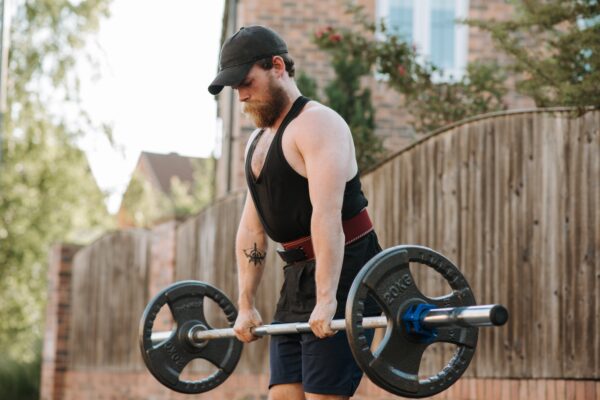The use of weight-lifting belts has long been a source of debate in the fitness community. While many individuals vouch for their advantages, other people think they could be more harmful than helpful. People may find it challenging to decide whether making an investment in a weightlifting belt is profitable due to its varied reviews. It is important to highlight that each year, a large number of people get into accidents when lifting enormous weights, frequently under the mistaken belief that a belt will enable them to lift weights above their natural capabilities. Because of this, we have invited licensed New York personal trainers to explain the advantages and disadvantages of utilizing lifting belts when lifting weights. They can also assist you in determining if a weight-lifting belt is right for you based on your unique needs and abilities.
Why a Lifting Belt Is Use?
When performing heavy lifting exercises like squats and deadlifts, a lifting belt is intended to support your lower back and core. By wearing a belt, you increase performance while lowering the risk of injury and stabilizing the spine through intra-abdominal pressure.
Advantages of Lifting Belt Use
Performance Improvement
A lifting belt can be used to improve performance on large lifting You can lift larger weights with better technique since the belt creates more intra-abdominal pressure. Over time, increased muscular activation and strength increases may result from this further assistance.
Injury Avoidance
Injury prevention is one of the main advantages of lifting belts. You run a higher chance of hurting other body parts or straining your lower back when you carry big objects. Your lower back and core receive additional support from a lifting belt, which lowers the risk that these problems may arise.
Better posture and Technique
A lifting belt may benefit some people by enhancing their posture and lifting technique. The belt can assist you in maintaining a neutral spine and lowering your risk of injury by supporting you and promoting good form.
Cons of Using a Lifting Belt
False Sense of Security
Some lifters may feel insecure if they use a lifting belt. You could lift more weight than you can manage without becoming harmed as a result. It’s important to remember that a lifting belt shouldn’t replace proper form and technique and that heavy weights should only be lifted under a personal trainer’s supervision. Use a lifting belt only while executing heavy lifts to add extra support.
Dependence on the Belt
The possibility of becoming unduly dependent on a lifting belt is one drawback of its use. Your core muscles may weak as a result of overusing a belt since they aren’t properly engage during activity. When lifting without a belt, this lack of involvement might increase your chance of being
The Belt’s Abuse
The frequent usage of lifting belts is another problem. If a belt is worn incorrectly or in the wrong place, it will be negative effects and even be very harmful. It is very important to know how to use a belt correctly and, if you are going to do so, to use it only when absolutely necessary.
When Is a Lifting Belt Useful?
Bodybuilding belts should not use for all exercises and should not, use throughout the entire workout. They should only use for particularly difficult exercises where you feel you need help, such as squats, deadlifts, or other exercises that put a strain on your lower back, such as lunges. It is very important that you pay attention to your body during strength training and know when it is useful to use a belt.
Last words
Some people may find weightlifting belts a useful aid to their strength training program, as they provide stability and support when lifting heavy weights. However, it is important to be aware of their correct use and potential drawbacks. Make sure you use weightlifting straps correctly and only when necessary to get the most out of them. If you are still unsure whether a weightlifting belt is the right choice for you, consider talking to a personal trainer who can provide personalized advice based on your unique needs and goals.



